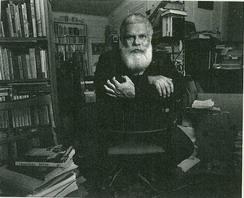shoes, one a lot muddier than the other. 'Do I need a weapon?'
'You gonna give her that?' Dragon Lady asked as I took my orchid off its chain.
'We got ourselves in enough trouble with this,' I said. 'I don't want it with me any more.'
'Okay,' Dragon Lady said. 'It's yours.'
'Where you from?' Glass was asking.
'Down from Canada.'
'You don't look Canadian.'
'I'm not. I was just visiting.'
'You know Albright?'
'No. You know Pern?'
'No. You know any of the little towns around Southern Ontario?'
'No. I spent all my time around Vancouver and B.C.'
'Oh,' Glass said.
'Here's your weapon.' I tossed the orchid. It clattered on the blacktop, rolled jerkily, and stopped.
'What is—?' The sound of a car motor made us all look toward the end of the bridge; but it died away on some turnoff. She looked back. 'What
'An orchid,' I said.
'Yeah,' Fireball said. 'That's what it is.'
She stooped, centered in her multiple shadows. She kept one thumb under her pack-strap; with her other band she picked it up.
'Put it on,' I said.
'Are you right or left handed?' Glass asked.
'Left.' She stood, examining the flower. 'At least, I write with my left.'
'Oh,' Glass said again.
'This is a pretty vicious looking thing.' She fitted it around her wrist; something glittered there. 'Just the thing for the New York subway during rush hour.' She bent her neck to see how it snapped. As her hair swung forward, under her collar was another, bright flash. 'Ugly thing. I hope I don't need you.'
I said: 'Hope you don't either.'
She looked up.
Spider and D-t had turned off their lights and were looking, anxiously, beyond the second stanchion toward the dark hills of the safer shore.
'I guess,' I told her, 'you can give it to somebody else when you're ready to be among the dried and crisp branches, trying to remember it, get it down, thinking: I didn't leave them like that! I didn't. It's not real. It can't be. If it is then I am crazy. I am too tired — wandering among all these, and these streets where the burning, burning, leaves the shattered and the toppling. Brick, no bridge because it takes so long, leaving, I haven't leaving. That I was following down the dark blood blots her glittering heel left on the blacktop. They slid into the V of my two shadows on the moon and George lit along the I walk on and kept. Leaving it. Twigs, leaves, bark bits along the shoulder, the hissing hills and the smoke, the long country cut with summer and no where to begin. In the direction, then, Broadway and train tracks, limping in the in the all the dark blots till the rocks, running with rusty water, following beside the broken mud gleaming on
This hand full of crumpled leaves.
It would be better than here. Just in the like that, if you can't remember any more if. I want to know but I can't see are you up there. I don't have a lot of strength now. The sky is stripped. I am too weak to write much. But I still hear them walking in the trees; not speaking. Waiting here, away from the terrifying weaponry, out of the halls of vapor and light, beyond holland and into the hills, I have come to
About the author

Samuel R. Delany was born in New York City on April 1, 1942. He grew up in New York's Harlem district and attended the Bronx High School of Science At City College he served as poetry editor of the magazine


